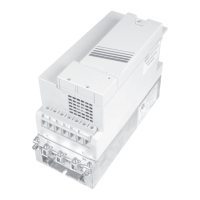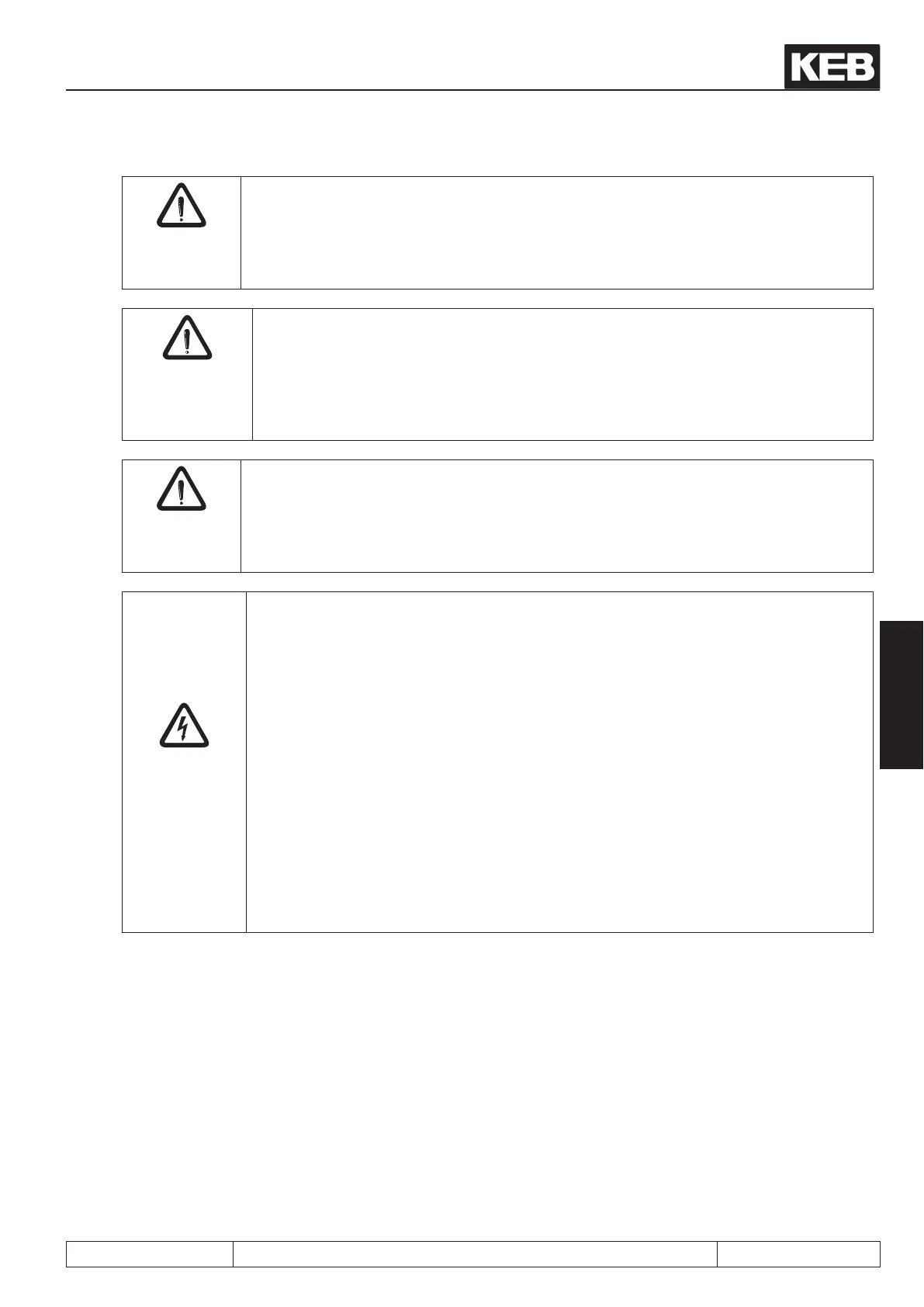Start-up
© KEB, 2008-02 COMBIVERT R6-S Page 4.1 - 7
4
10
Not Short-
Circuit Proof
(Supply)
The COMBIVERT R6 is not short-circuit proof at the power supply input
! If the I2t-protection
is adapted with a gR fuse, a conditional protection at supply input is possible. If necessary
the short-circuit protection at the DC output is ensured by internal aR fuses.
Conditionally
Short-Circuit
Proof
(Feedback)
The COMBIVERT R6 is conditionally short-circuit proof (EN 61800-5-1 / VDE 0160). After
resetting the internal protection devices, the function as directed is guaranteed.
Exception:
if an earth-leakage fault or short-circuit often occurs at the output, this can lead to a defect
in the unit.
Cyclic Acti-
vation And
Deactivation
With applications requiring the COMBIVERT R6 to be switched on and off cyclically, maintain
an off-time of at least 5 min. If you require shorter cycle times please contact KEB.
RCD (Residual
Current Ope-
rated Circuit-
Breaker)
If personnel protection of the system is required, the COMBIVERT R6-S must be protected
according to EN 61800-5-1:
3-phase inverters (with B6 bridge • rectier)byRCMA’swithseparation(usedprivile-
ged)orRCD’stypeB(all-currentsensitiveFI’s)
The tripping current should be 300mA or more, in order to avoid a premature triggering by
discharge currents (about 200mA. Dependent on the load, the length of the motor cable
andtheuseofaradiointerferencelter,substantiallyhigherleakagecurrent can occur.
The connection instructions from the manufacturer and the valid local requirements must
be observed.
Dependent on the available mains form (TN, IT, TT) further protective measures are neces-
sary in accordance with VDE Part 410 4 (Part 4; chapt. 41).
For example, with TN-mains this protection is made with overcurrent protective devices,
with IT-mains it is insulation monitoring with a pulse-code measuring method. A protective
separation can be used with all mains forms as long as the required power and cable
lengths permit this.
The person setting up the unit must present proof of compatibility before installing the
inverter!

